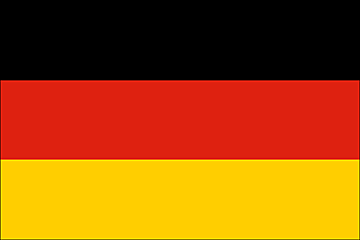| ICFCY-Code | Title | Description |

|
d110
|
Watching |
Using the sense of seeing intentionally to experience visual stimuli, such as visually tracking an object, watching persons, looking at a sporting event, person, or children playing. |

|
d166
|
Reading |
Performing activities involved in the comprehension and interpretation of written language (e.g. books, instructions, newspapers in text or Braille), for the purpose of obtaining general knowledge or specific information. |

|
d2300
|
Following routines |
Responding to the guidance of others in engaging in basic daily procedures or duties. |

|
d240
|
Handling stress and other psychological demands |
Carrying out simple or complex and coordinated actions to manage and control the psychological demands required to carry out tasks demanding significant responsibilities and involving stress, distraction, or crises, such as taking exams, driving a vehicle during heavy traffic, putting on clothes when hurried by parents, finishing a task within a time-limit or taking care of a large group of children. |

|
d3102
|
Comprehending complex spoken messages |
Responding appropriately in actions or with words to complex spoken messages (complete sentences), such as questions or instructions. |

|
d325
|
Communicating with - receiving - written messages |
Comprehending the literal and implied meanings of messages that are conveyed through written language (including Braille), such as following political events in the daily newspaper or understanding the intent of religious scripture. |

|
d5404
|
Choosing appropriate clothing |
Following implicit or explicit dress codes and conventions of one's society or culture and dressing in keeping with climatic conditions. |

|
d570
|
Looking after one's health |
Ensuring or indicating needs about physical comfort, health and physical and mental well-being, such as by maintaining a balanced diet and an appropriate level of physical activity, keeping warm or cool, avoiding harm to health, following safe sex practices, including using condoms, getting immunizations and regular physical examinations. |

|
d5702
|
Maintaining one's health |
Caring for oneself by being aware of the need and doing what is required to look after one's health, both to respond to risks to health and to prevent ill-health, such as by seeking caregiver or professional assistance; following medical and other health advice; and avoiding risks to health such as physical injury, communicable diseases, drug-taking and sexually transmitted diseases. |

|
d57020
|
Managing medications and following health advice |
|

|
d6600
|
Assisting others with self-care |
Assisting household members and others in performing self-care, including helping others with eating, bathing and dressing; taking care of children or members of the household who are sick or have difficulties with basic self-care; helping others with their toileting. |

|
e1150
|
General products and technology for personal use in daily living |
Equipment, products and technologies used by people in their daily activities, such as clothes, textiles, furniture, appliances, cleaning products and tools, not adapted or specially designed, except as appropriate for age, such as utensils for children. |

|
e165
|
Assets |
Products or objects of economic exchange such as money, goods, property and other valuables that an individual owns or of which he or she has rights of use or rights of benefit, such as child support payment or wills for children or dependent persons. |

|
e310
|
Immediate family |
Individuals related by birth, marriage or other relationship recognized by the culture as immediate family, such as spouses, partners, parents, siblings, children, foster parents, adoptive parents and grandparents. |

|
e5700
|
Social security services |
Services and programmes aimed at providing income support to people who, because of age, poverty, unemployment, health condition or disability, require public assistance that is funded either by general tax revenues or contributory schemes, such as services for determining eligibility, delivering or distributing assistance payments for the following types of programmes: social assistance programmes (e.g. non-contributory welfare, poverty or other needs-based compensation), social insurance programmes (e.g. contributory accident or unemployment insurance), and disability and related pension schemes (e.g. income replacement), including those who provide these services. |


 =Select (and add) this code
=Select (and add) this code  Click on a code to expand the branch
Click on a code to expand the branch 
























